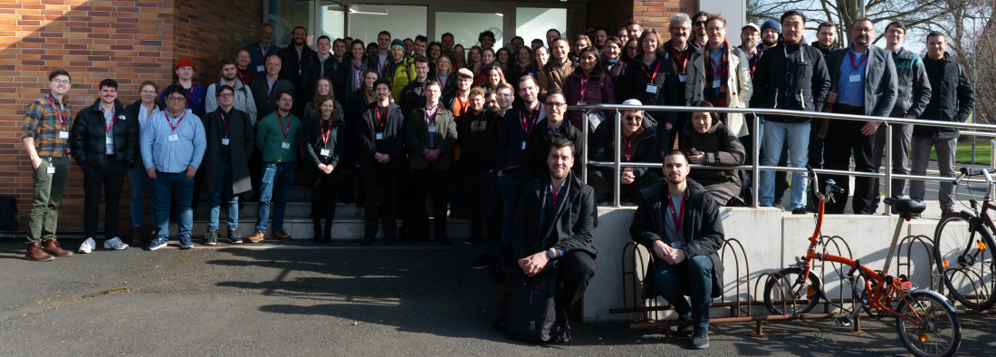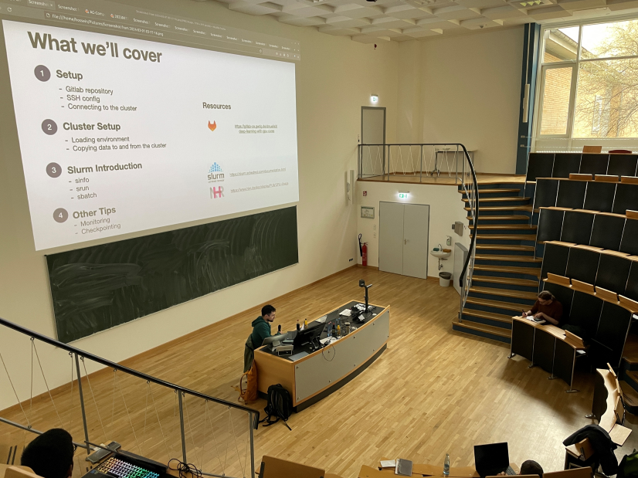KISSKI present on the Biosignals Workshop in Göttingen

From February 28 to March 1, the Biosignals Processing Group of the University Medical Center Göttingen hosted the Biosignals Workshop 2024. The conference attracted about 80 participants from all over the world who focused on biosignal analysis, biomagnetism and new related topics such as artificial intelligence and medical data science.
The oral and poster presentations focused on the processing and automated analysis of a wide range of medical sensor data (biosignals). In particular, the automated interpretation of EEG curves was much discussed, both in the context of lifelong health monitoring and for the targeted prediction of diseases. Many presentations emphasized the particular importance of the explainability of predictions and visual classifications in the medical field (XAI). Explainability is the prerequisite for being able to use models in clinical practice. Of course, EEGs were not the only topic at the conference. There were a number of presentations dealing with the possible applications of cameras in medicine. The approaches here ranged from the use of a low-cost webcam to record movement for venous hemodynamics to camera-based temperature measurement in newborns.
In the KISSKI keynote, Joanna Warnecke from the University of Cambridge spoke about in-vehicle health monitoring and the vision of turning the car into a diagnostic space.
One question that kept coming up among the audience was the public availability of databases to reproduce the work. This was denied in all cases by the speakers due to the strict data protection guidelines within the EU. KISSKI offers extensive services for precisely such data and scenarios, ranging from secure data catalogs, in which sensitive data can be indexed and later selectively shared with specially authorized persons, to secure HPC partitions, in which sensitive data can be processed with high performance.
 In addition to the several dozen talks and poster presentations, the Biosignals workshop also offered three hands-on workshops, one of which was run by KISSKI. The KISSKI workshop primarily focused on various aspects of data processing and handling for research purposes, including clustering, secure HPC for medical use cases, machine learning concepts, continuous integration of ML, data management, data organization and data storage. In addition, the workshop focused on the creation of data lakes and the application of bioinformatics tools such as RStudio and Galaxy in biomedical research.
In addition to the several dozen talks and poster presentations, the Biosignals workshop also offered three hands-on workshops, one of which was run by KISSKI. The KISSKI workshop primarily focused on various aspects of data processing and handling for research purposes, including clustering, secure HPC for medical use cases, machine learning concepts, continuous integration of ML, data management, data organization and data storage. In addition, the workshop focused on the creation of data lakes and the application of bioinformatics tools such as RStudio and Galaxy in biomedical research.
